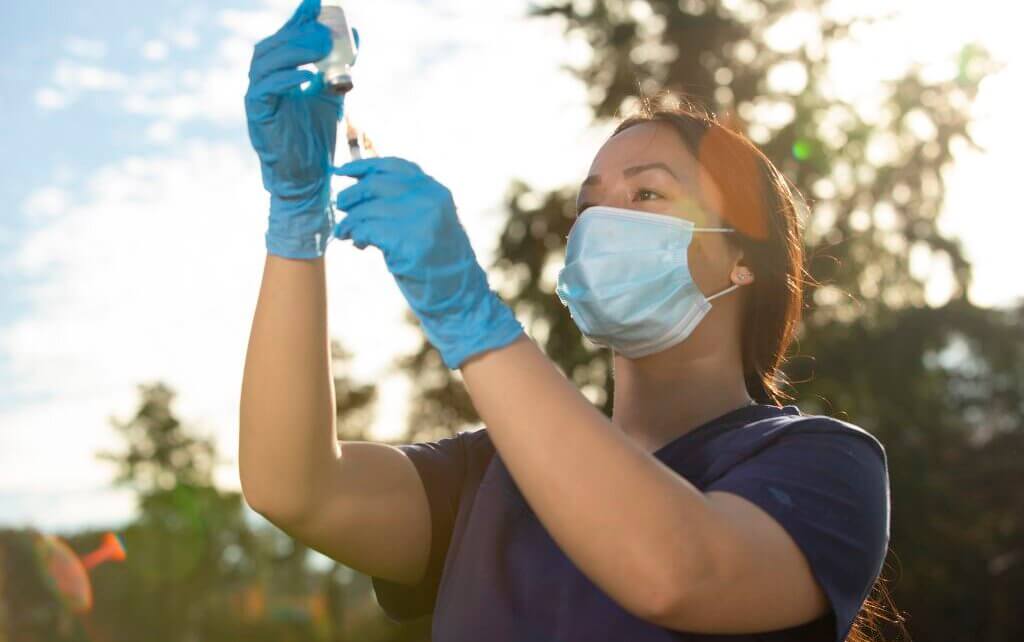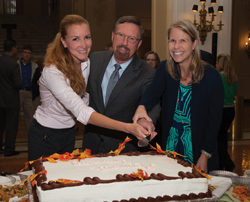The Marjorie K. Unterberg School of Nursing and Health Studies has experienced concerning enrollment trends and questions about academic leadership, presenting potential issues for students in the Nursing, Health and Physical Education, Occupational Therapy, and Physician Assistant departments.
Concerns regarding student enrollment have been especially prevalent for the University’s Master of Science in Nursing (MSN) program, which has experienced a gradual decline in enrollment over the past two years. According to Robert McCaig, Ed.D, Vice President for Enrollment Management and Marketing, the official enrollment numbers for the MSN program decreased from 86 students in the 2019-2020 academic year to 68 students in 2020-2021, and further fell to 62 students enrolled for 2021-2022.
“While the MSN certainly took a hit during the pandemic, the Bachelor of Science in Nursing (BSN) continues to attract more than 600 candidates for just 60 spots, and the Doctor of Nursing Practice (DNP) just hit its highest-ever enrollment of 20 students this spring. I think it comes down to nursing and other health care work being more of a calling than a vocation, and a pandemic—high stress, high risk, long hours and all—is not going to deter most people from that calling,” explained McCaig.
Although MSN enrollment numbers at Monmouth suffered in 2020 and have continued to decline, data from the American Association of College Nursing (AACN) shows that enrollment numbers in baccalaureate, master’s, and doctoral nursing programs have increased across the US. The fall 2020 survey found a 4.1 percent increase in MSN program enrollment based on data reported from 956 of the 1,035 nursing schools across the nation. This was not the case at Monmouth, where MSN enrollment numbers experienced a sharp decrease in 2020.
Soraya Sultan, a Monmouth University MSN graduate, described the difficulties of being a nursing student during the pandemic. She, like many other students at the time, was experiencing financial family circumstances related to the pandemic and requested to start her clinical hours in March rather than in January with the rest of her class so that she could work as a travel nurse in California.
“I would complete the 300 hours that we all had to do, it wasn’t like I was doing less hours or anything like that. I was just starting later and cramming the hours in toward the end,” said Sultan, who noted that she was not the only student asking for COVID-related accommodations. As such, her request was granted and she was given permission to begin her clinicals later in the semester.
A change in administration in 2020 prompted Sultan to check in with the University and remind them that she would be starting her clinicals late. “It was more just letting them know, I wasn’t really asking for permission since I had already gotten it previously.”
To her surprise, Sultan was told that this accommodation would no longer be honored. She was working as a travel nurse in California at the time and was told that she had to end her assignment in order to return to Monmouth University to start her clinicals in January – otherwise, she would not graduate on time. Upon her return, Sultan was still unable to start her clinicals on time due to COVID restrictions that limited the number of students allowed in offices. Still, the University denied Sultan’s request to start her clinicals late and instead told her that she could complete them over the summer, effectively delaying her graduation from Spring 2021 to Summer 2021.
“Not only were they not treating us as professionals, but they weren’t treating us as human beings,” said Sultan. “They didn’t care whatsoever. If a program is going to be reputable, it has to be dependable. How can I recommend a program that failed me so much?”
“Before the change of administration, I loved the program. I had nothing bad to say about it. With the change of administration, I wouldn’t recommend the program to anybody. They turned my life upside down, it was such an upsetting experience,” she continued. “I’m not surprised to hear about what’s happened since I’ve graduated. It’s unfortunate, but if it has to come to this for things to change, it is what it is.”
“Previously, I felt that the department was able to provide students with the kind of program they needed,” said Roseanne Roberson, former Assistant to the Dean. “They had the students’ best interest at heart and worked with them and knew their history. They were willing to make compromises as long as it fit into the program. They understood a person’s situation and had agreed to certain things. If you give someone your word, they are thinking that that word is good no matter what and would be followed through. Once the head of the school changed, that did too.”
“They don’t have enough faculty for the students,” continued Roberson. “They haven’t replaced the faculty that left, and that of course is going to trickle down to affecting the students. The students deserve these faculty positions to be replaced with qualified, full-time people.”
The department of Nursing has been without a chair since December of 2020. John Patro, OTD, OTR/L, Associate Professor and Chair of Occupational Therapy Department, currently functions as the interim chair of Nursing.
Similarly, the chair of the department of Health and Physical Education resigned in January of 2022 and has not yet been replaced. The Director of the Physician Assistant (PA) program resigned in December of 2021, a position which has also not yet been filled.
The University’s PA program has Accreditation-Continued status from The Accreditation Review Commission on Education for the Physician Assistant, Inc. (ARC-PA), but the lack of a PA program director poses a potential threat to this accreditation status.
Philip Ragusa, Class of 2023 PA Program President, and Sarah Delzio, Class of 2024 PA Program President, described how the stress of not knowing what’s going on with the program has hindered PA students from focusing on their studies. In order to address concerns about the program and the impact of former program director Scott Richards’ resignation, a meeting was called with President Patrick Leahy and Provost Pamela Scott-Johnson.
“There’s been no movement. The Dean, the Provost, and the President are all full of false promises. They told us they would come back with answers, but we’ve heard nothing from them. It’s been like radio silence,” said Delzio.
“There were heads butting somewhere at a level above the program,” added Ragusa. “We have great faculty. Old directors had been in and out, and staff at that time were willing to step up and fill an interim director role in order to keep the program afloat until somebody like Dr. Richards could fill a more permanent position and get it to where it ultimately needed to go. To see no one want to do that now says all you need to know about what’s going on.”
“The crux of the argument is a financial dilemma,” continued Ragusa. “We already don’t have enough faculty, equipment, or supplies. Ideally, the correction would be allocating money better and listening to the expertise that the faculty bring to the table when it comes to having a successful PA program.”
“These faculty are PA’s and doctors. They’re people who work in the field and know what PA students need to succeed. The Provost and the President have nothing to do with being a PA. They don’t know what students in the PA program need to be successful. If anything, listen to the internal faculty who have worked to grow this program and been so successful at it, and listen to what their needs are.”
*Disclaimer: The print version of this story includes a quote from Sarah Delzio stating that Dean Mauro is a Nurse Practitioner, which she is not. The online version has been amended to omit this quote.




